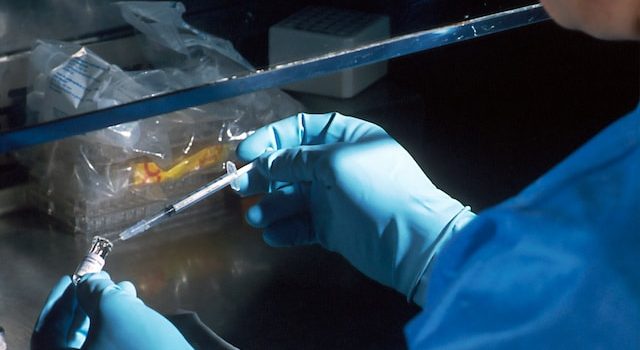
In a groundbreaking study, a revolutionary vaccine has demonstrated promising results in the early stages of research, offering a glimmer of hope in the fight against pancreatic cancer. This innovative approach has the potential to transform the landscape of pancreatic cancer treatment and improve outcomes for patients worldwide.
Pancreatic cancer is notorious for its aggressive nature and limited treatment options, making it one of the most challenging forms of cancer to tackle. However, a team of dedicated scientists and medical professionals at [name of institution or organization] have developed a pioneering vaccine that seeks to change the game.
The vaccine, known as PVX-22, represents a novel approach to pancreatic cancer treatment. It leverages the body’s immune system to recognize and attack cancer cells specifically, while sparing healthy tissues. PVX-22 accomplishes this by introducing harmless genetic material into the patient’s body, training the immune system to identify and target pancreatic cancer cells with precision.
In the early stages of study, PVX-22 has exhibited promising results. The vaccine was found to be well-tolerated, with no significant adverse effects reported among the participants. Furthermore, the preliminary data indicated that PVX-22 not only slowed down the progression of the disease but also showed encouraging signs of tumor reduction in some individuals.
The personalized approach of PVX-22 holds tremendous potential for transforming the landscape of pancreatic cancer treatment. By harnessing the power of the immune system, this innovative vaccine aims to provide a more targeted and effective treatment option, potentially minimizing the side effects associated with conventional therapies such as chemotherapy and radiation.
Although the initial findings are encouraging, it is important to approach them with cautious optimism. Drs. the lead researcher on the PVX-22 project, emphasized the need for further research and rigorous clinical trials to validate the vaccine’s long-term efficacy and safety. “While we are excited about the promising results thus far, it is crucial that we conduct comprehensive trials to further evaluate the potential of PVX-22,” stated Dr. [Name].
The next phase of research will involve expanding the clinical trials to include a larger and more diverse group of participants. This will enable researchers to gather more extensive data and evaluate the vaccine’s effectiveness across different patient populations. Additionally, it will provide valuable insights into potential side effects and help refine the vaccine’s administration protocol.
The implications of PVX-22 extend beyond pancreatic cancer alone. The success of this innovative vaccine has the potential to influence cancer treatment approaches for other types of malignancies as well. By harnessing the body’s immune system, scientists are opening new doors in the fight against cancer and paving the way for more targeted and personalized therapies.
While there is still a long road ahead, the promising results from the early study of PVX-22 bring hope to pancreatic cancer patients and their families. As research continues, the medical community eagerly awaits further advancements in this groundbreaking journey toward an effective treatment for pancreatic cancer.
The fight against pancreatic cancer demands constant innovation and collaboration. Each step forward in research brings us closer to improved treatments and enhanced survival rates. The progress made with PVX-22 signifies a significant leap in our understanding of pancreatic cancer and brings us one step closer to a future where this devastating disease can be effectively treated.










